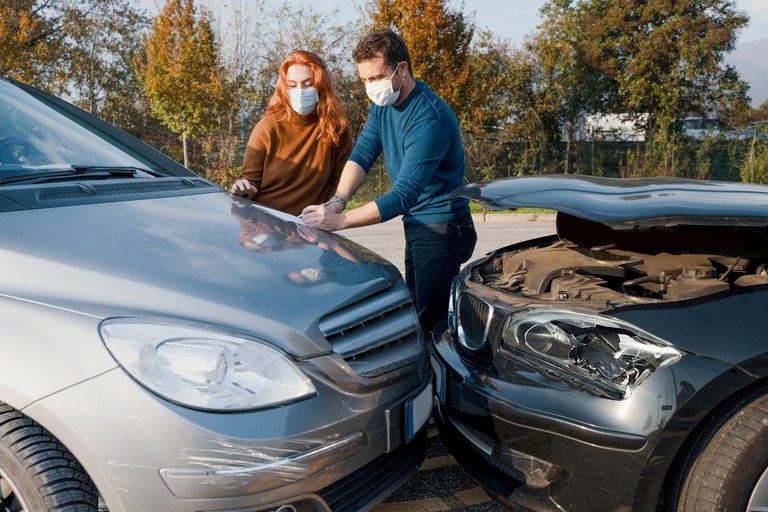Car crash deaths have surged during COVID-19 pandemic. Here’s why
Traffic Safety Pulse News
(LA Times) Experts were shocked to find there were 38,680 deaths on U.S. roadways last year, the most since 2007 even though pandemic precautions had dramatically reduced driving.
One possibility was that stressed-out Americans were releasing their anxieties on the wide-open roads, and some guessed that fatal accidents would decline in 2021 when traffic returned. However, the latest evidence suggests that after decades of safety gains, the pandemic has made U.S. drivers more reckless — more likely to speed, drink or use drugs and leave their seat belts unbuckled.
Experts say that behavior on the road is likely a reflection of widespread feelings of isolation, loneliness and depression.
The rise in motor vehicle deaths lines up with other pandemic-era trends: Alcohol sales have soared, drug overdoses have set new records, and homicides have seen their biggest increase on record.
COVID-19 marks “a sea change in psychology,” said Frank Farley, a professor of psychology at Temple University in Philadelphia, who views reckless driving as a form of rebellion — or what he calls “arousal breakout.”
Annual traffic fatalities were at a 7.2% rise in 2020, followed by an 18% jump in the first six months of this year, based on preliminary figures from the federal government.
What made last year’s increase so astonishing was that the total miles driven — an estimate calculated by sampling traffic on various roadways — fell by more than 13% as cities locked down and more people worked from home.
Some patterns have also emerged within the rise of traffic related fatalities. The top being that the death rate for Black people rose more than three times faster than the death rate overall, a disparity that could reflect a deeper sense of despair in the poorer communities hit hardest by the pandemic.
Shannon Frattaroli, a researcher at Johns Hopkins Bloomberg School of Public Health, wondered whether it was related to a disproportionate number of Black people in the essential workforce, including delivery drivers who are “paid by how fast you can move.”
In one of the clearest indications of rising recklessness, fatal accidents involving just one vehicle also rose disproportionally.
The data also show an outsized increase in deadly accidents involving speeding, illegal substances or a failure to wear a seatbelt.
Jonathan Adkins, executive director of the Governors Highway Safety Assn., a Washington nonprofit representing agencies nationwide, suggested that people’s disregard for themselves and others on the road is part of a national decline in civility that accelerated during the pandemic.
“Anecdotally, we hear from governors’ offices around the country that it’s a symptom and a sign of the overall lack of consideration we’re showing for other citizens, whether it be wearing masks, or not getting vaccinated, or how we drive,” he said. “It’s very aggressive. It’s very selfish.”
Research based on crash investigations has shown that even a slight speed increase — say, from 50 mph to 56 mph — is enough to increase the driver’s risk of death.
Since the start of the pandemic, a larger share of accident victims — including those who survived — have been ejected from their vehicles, typically because they were not wearing seatbelts.The increase in ejections was seen just as lockdowns began. Men have accounted for a disproportionate share.
Rising drug and alcohol use is also contributing to the road's increasing danger. In one survey, more than 7% of adults said they were more likely to drive while impaired than they were before the pandemic, and researchers also found that the proportion who tested positive for opioids nearly doubled after the pandemic began. Marijuana use also rose considerably.
Drivers are also more distracted while on the roads.. Researchers used GPS and other data to determine that drivers used their phones more frequently after the pandemic began, and that the problem only worsened over time.
To reduce traffic fatalities, some states have enacted legislation to crack down traffic safety laws. Other states have loosened their driving laws. In Virginia, drivers can now go up to 85 mph — rather than 80 mph — before being charged with reckless driving. Motorists in Maine convicted of criminal negligence that results in a driving-related death now have their licenses suspended one year instead of three. And nationwide, more than two dozen traffic safety bills proposed in 2020 and 2021 fell flat.
Read the full article here.

